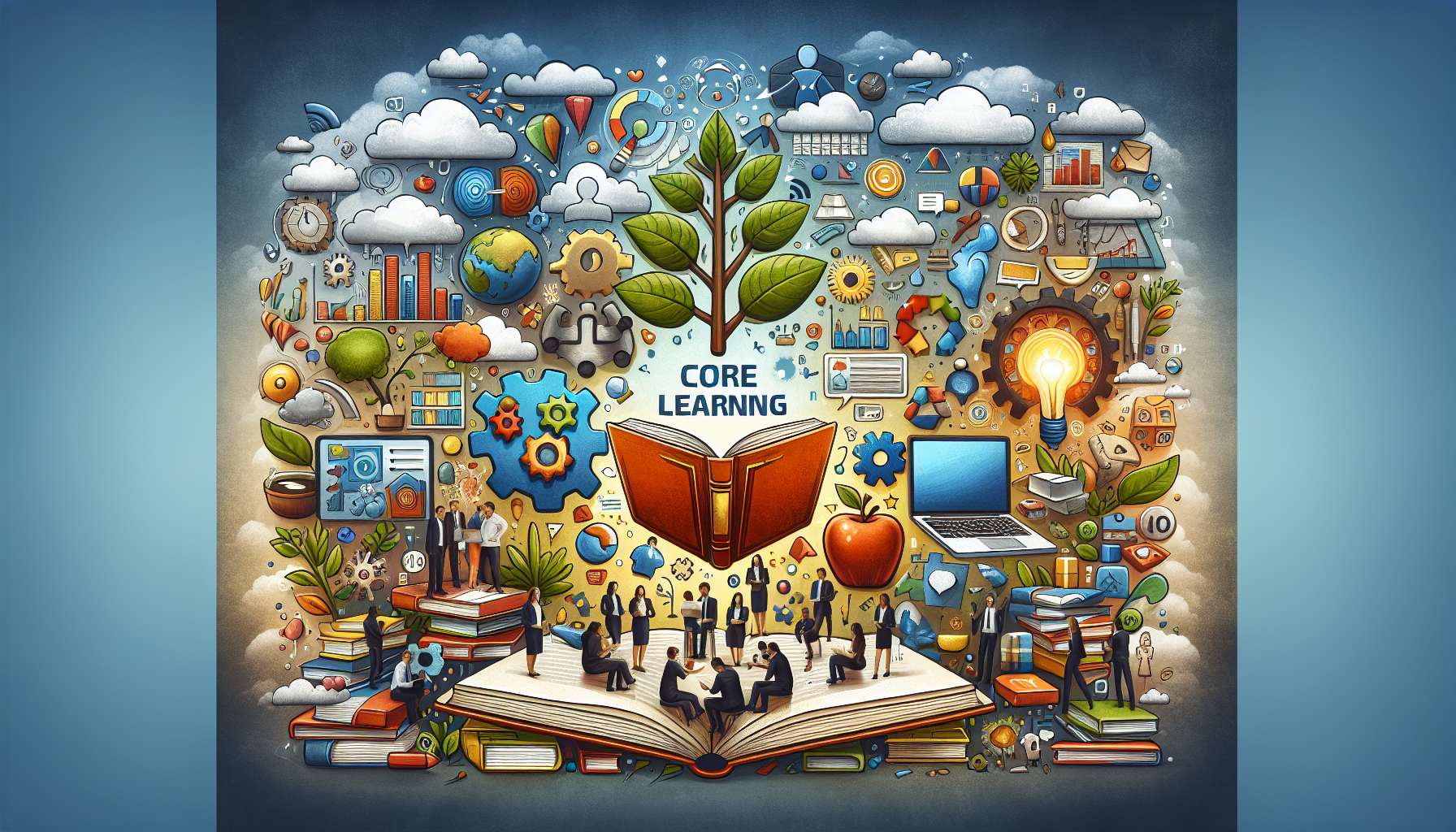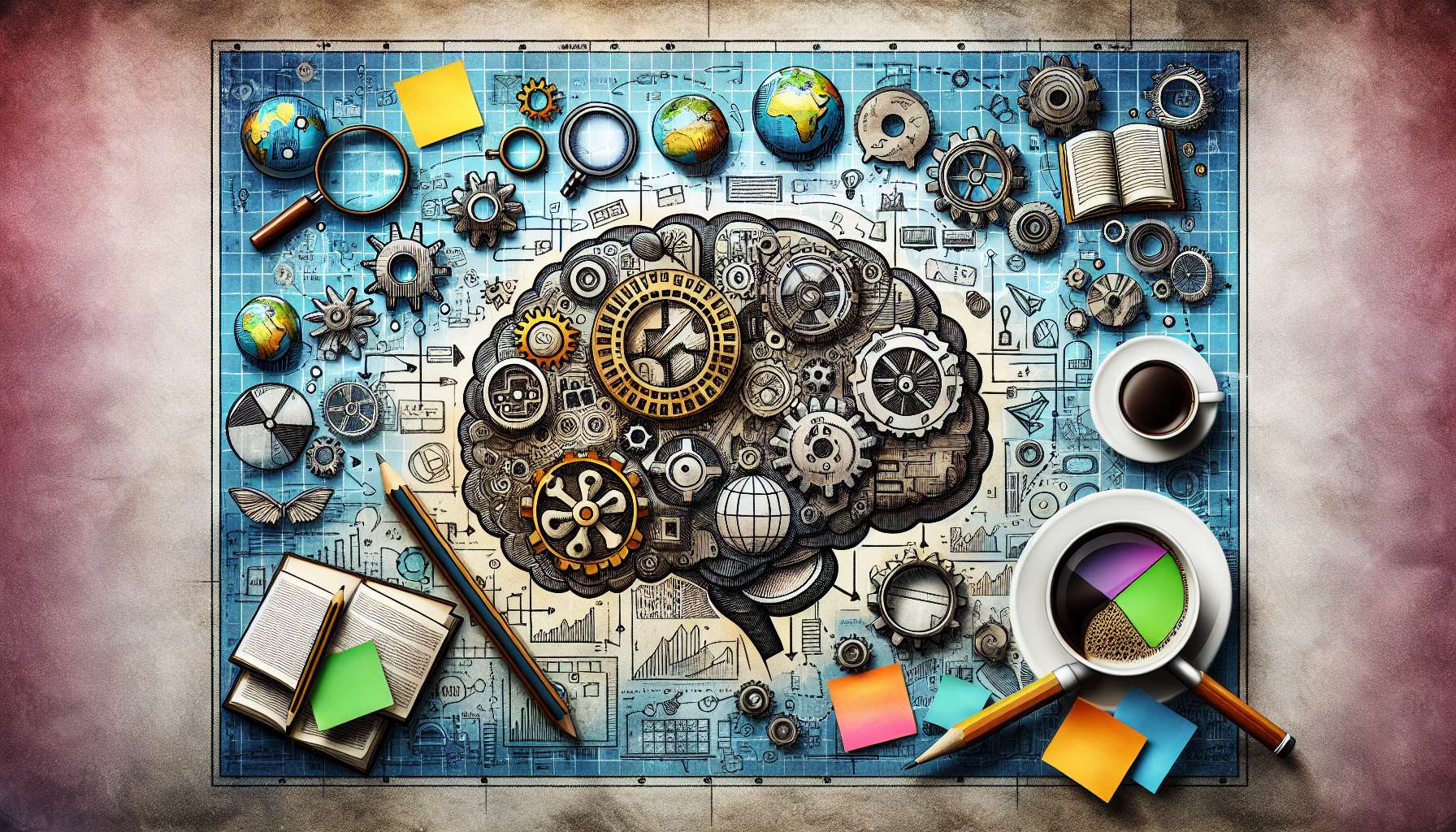Unlocking the Power of Core Learning Strategies: A Comprehensive Guide
Have you ever wondered why some people seem to learn new skills effortlessly while others struggle to grasp even the basics? What sets apart successful learners from those who find themselves stuck in a cycle of frustration and stagnation? The answer lies in understanding and harnessing the power of core learning strategies.
In this comprehensive guide, we will delve deep into the world of core learning strategies, exploring the fundamental principles, techniques, and approaches that can help you optimize your learning potential. From cognitive psychology to practical applications, we will unravel the mysteries of how we learn and provide you with the tools to become a more effective and efficient learner.
The Science Behind Learning
Before we can explore core learning strategies, it is essential to understand the underlying science of learning. Cognitive psychology, a branch of psychology that focuses on mental processes such as memory, attention, and problem-solving, plays a crucial role in shaping our understanding of how we learn.
One of the key concepts in cognitive psychology is the idea of information processing, which posits that our brains function like a computer, processing incoming information through a series of stages: encoding, storage, and retrieval. By understanding how these processes work, we can develop strategies to enhance our learning and memory retention.
Active Learning vs. Passive Learning
When it comes to learning, not all approaches are created equal. Active learning, which involves engaging with the material through activities such as problem-solving, discussion, or application, has been shown to be far more effective than passive learning, where information is simply presented without active participation.
Research has demonstrated that active learning leads to deeper understanding, better retention of information, and improved critical thinking skills. By incorporating active learning strategies into your study routine, you can enhance your learning outcomes and reap the benefits of a more engaging and effective learning experience.
Metacognition: Thinking About Thinking
Metacognition, or the ability to think about one’s own thinking processes, is a key component of effective learning. By becoming more aware of how we learn and the strategies we use to acquire new knowledge, we can make conscious decisions to improve our learning outcomes.
Metacognitive strategies include setting goals, monitoring progress, and evaluating the effectiveness of different learning approaches. By incorporating metacognitive practices into your study routine, you can become a more strategic and self-regulated learner, leading to improved academic performance and greater overall success.
Chunking: Breaking Down Information
Chunking is a cognitive strategy that involves breaking down information into smaller, more manageable chunks to aid in memory retention and recall. By organizing information into meaningful patterns or groups, our brains can more effectively process and store the information for later retrieval.
For example, when learning a new language, you may group vocabulary words by category or theme to make them easier to remember. By employing chunking strategies in your learning process, you can enhance your memory capacity and improve your ability to retain and recall information more effectively.
Spaced Repetition: Maximizing Memory Retention
Spaced repetition is a learning technique that involves revisiting and reviewing information at spaced intervals to optimize memory retention. By spacing out your study sessions over time, you can reinforce learning and prevent forgetting, leading to more durable and long-lasting memory traces.
Research has shown that spaced repetition is highly effective in enhancing memory retention and recall, making it a valuable tool for students, professionals, and lifelong learners alike. By incorporating spaced repetition into your study routine, you can make the most of your learning efforts and achieve better results in the long run.
Mnemonics: Memory Aids and Techniques
Mnemonics are memory aids or techniques that help facilitate the encoding and retrieval of information. By associating new information with familiar or easily remembered cues, mnemonics can enhance memory recall and make learning more efficient and effective.
Popular mnemonic techniques include acronyms, visualization, and rhymes, which provide a structured framework for organizing and retaining information. By incorporating mnemonics into your learning process, you can improve your memory retention and recall abilities, making it easier to remember important concepts and information.
Collaborative Learning: Learning from Others
Collaborative learning is an approach that involves working together with others to achieve common learning goals. By engaging in group discussions, collaborative projects, or peer teaching, learners can benefit from the diverse perspectives, insights, and expertise of their peers.
Research has shown that collaborative learning can lead to improved critical thinking skills, enhanced problem-solving abilities, and increased motivation and engagement. By actively participating in collaborative learning activities, you can expand your knowledge base, deepen your understanding of complex concepts, and develop important social and communication skills.
Expert Opinions: Insights from Learning Scientists
According to renowned learning scientist Dr. John Sweller, “Learning is most effective when it is an active process rather than a passive one. By engaging with the material, asking questions, and making connections, learners can deepen their understanding and retention of information.”
Dr. Barbara Oakley, a leading expert in the field of learning and memory, emphasizes the importance of metacognition in the learning process. “By reflecting on our learning strategies and adjusting them as needed, we can become more effective and efficient learners,” she states.
Conclusion
To wrap things up, core learning strategies are essential tools that can help you unlock your full learning potential and achieve your academic and professional goals. By understanding the science of learning, incorporating active learning practices, and leveraging cognitive strategies such as metacognition, chunking, and spaced repetition, you can enhance your learning outcomes and become a more effective and efficient learner.
Remember, learning is a lifelong journey, and by embracing core learning strategies, you can embark on a path of continuous growth, development, and success. So why wait? Start implementing these strategies today and watch your learning outcomes soar to new heights!




